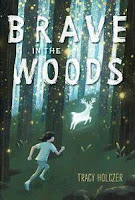*Season #SIX (Summer 2019)
Some characters come in really clear and strong from the beginning. Juni wasn’t one of those characters. I think maybe because I had the idea for some of the plot first. So Juni came into focus as I wrote her into scenes. What would she do if this happened? That? Decision by decision crystallized her character for me.
What do you think is Juni’s most admirable quality?
Juni is very loyal. She would go great distances, quite literally, for the people she loves.
Is there anything you wish she would have changed or done differently in her story?Katherine Paterson speaks of “inevitable endings.” That they may not necessarily be the ones you want, but they are the ones that need to be. Without giving too much away, I had a very different ending in mind for Juni. A fairy tale ending. And that was how I originally wrote the first few drafts. Then I gave it to my writing group and editor and they gently suggested I had the wrong ending. As soon as they pointed this out, I knew they were right. But I don’t know that I could have written the whole novel any other way. I was protecting myself, I suppose, much as Juni does.
What do you think she can offer to other children that are experiencing similar situations to what she went through?
I think Juni offers an example of resilience. I hope kids will connect to her because she’s been through something unimaginable and come out the other side. I also hope they know its okay to have messy feelings and are encouraged to find those people in their lives who can help them sort it all out.
Do you and Juni share any similarities?
We are both very sensitive people, and turn to storytelling for comfort. I tried to write about that for Juni. So kids can see they have power over the stories they tell themselves about who they are. It’s never too late to change your story.
What was the hardest scene to write about her?
Who do you think was her biggest supporter and why?
I think it was Luca. I just surprised myself by writing that. But his name just jumped into my head. I think because Luca saw her, understood what she was going through from the very beginning, and set out to help her figure it out. Her mom and dad were too lost, Anya was too close to the situation. And her best friends were too young to really understand enough to help. But Luca. He stepped in and did what Connor would have done.
Why do you think some young people, like Juni, are able to create their own answers/solutions to difficult life situations?
I think when kids go through tremendous hardship, it shifts something inside of them. It widens their lens on the world and makes them a little more wise than their years. Plus, there are just some kids who don’t give up. But I think most kids are naturally curious about life and want to understand better how it all works. Some just have more motivation, through hardship, to figure it out sooner rather than later.
What do you think Juni is doing as the present time?
I think Juni is enjoying eighth grade as best she can. It will be a tough year for her. But she has the love of best of friends and family to help her through it.
SEASON #SIX (Summer 2019)
Interview #122 with Tamara Bundy (Author of Pixie Pushes On)
Interview #123 with Lindsay Lackey (Author of All the Impossible Things)
Interview #124 with Tae Keller (Author of When You Trap a Tiger)
Interview #125 with Jamie Sumner (Author of Roll With It)
Interview #126 with Hena Khan (Author of More to the Story)
Interview #127 with Phil Bildner (Author of A High-Five for Glenn Burke)
Interview #128 with Leslie Connor (Author of A Home for Goddesses and Dogs)
Interview#129 with Gillian McDunn (Author of Queen Bee and Me)
Interview #130 with Jody J. Little (Author of Worse Than Weird)
Interview #131 with Jenn Bishop (Author of Things You Can't Say)
Interview #132 with Kaela Noel (Author of Coo)
Interview #133 with Rebecca Stead (Author of The List of Things That Will Not Change)
Interview #134 with Gae Polisner (Author of Jack Kerouac is Dead to Me)
Interview #135 with Emily Blejwas (Author of Like Nothing Amazing Ever Happened)
Interview #136 with Joy McCullough (Author of A Field Guide to Getting Lost)
Interview #137 with Kim Baker (Author of the Water Bears)
Interview #138 with Erin Entrada Kelly (Author of We Dream of Space)
Interview #139 with Jess Redman (Author of Quintessence)
Interview #140 with Melanie Conklin (Author of Every Missing Piece)
Interview #141 with Lindsey Stoddard (Author of Brave Like That)
Interview #158 with Rebecca Ansari (Author of The In-Between)
Interview #159 with John David Anderson (Author of One Last Shot)


No comments:
Post a Comment